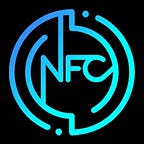Problems with the future internet | Web 3.0
The future internet known as web 3.0 is coming, and although there’s a lot of hype surrounding its development, there are a few drawbacks that will impede its development. In this article, we will explore some of these issues.
Ultimately, web 3.0 architecture is something the majority of the world has been looking for. It is a means that can ensure complete privacy, and security, and address numerous issues such as scalability.
Web 3.0 is described as a decentralized, peer-to-peer network, that enables users complete autonomy over their data. Just by describing what web 3.0 is we can begin understanding why there are obstacles slowing down its development.
Let’s dive into what problems are associated with the future internet, and perhaps uncover why in which we can overcome these issues.
A lack of data & information
What we have today are these monopolies that have stored every piece of information we see on the internet in large data farms. When we want to access this information we must give away some type of information, click on ‘accept all cookies’, and basically sign over every anonymity freedoms we have to access them.
This is a centralized structure. Let’s take Google as our primary example. Google’s search algorithm basically acts as a stitching mechanism that bridges all these different websites, hosted across numerous locations, together.
When we search for something using Google search, we are asking Google to find the information we need in the fastest time possible, something Google does incredibly well. So, Google is accessing numerous servers to deliver these results.
In a web 3.0 infrastructure, all the information will be decentralized, meaning, a company like Google will have a hard time indexing and gathering the information we need. What’s happening is that in a decentralized internet network, the user experience will be dreadful for those trying to access information.
Currently, there is no indexing search engine that can tag and deliver information similar to Google’s method. This will become a problem, and currently, there aren’t any popular solutions for this in a web 3.0 architecture.
So, does this mean the future internet will be more like a hybrid between existing systems and these newly formed decentralized systems? This is a question that not many can answer, at least not right now.
The future internet, or web 3.0, is still in its infancy stages. It is promising all these grand changes, but is it missing the mark by offering a complex system that sways people away from using it?
In order for web 3.0 to see mass adoption, the complexity must be simplified, information must be abundant, and tools must be simple and easy to use. Without them, web 3.0 will struggle to rise in its development.
Governments & corporations
We see from the aspect of the technology side and its current limitations. Now, on the other spectrum, the future internet must overcome the socio-economic strains that are restricted by legislation and corporations.
From the perspective of a government body, a decentralized, “uncontrolled” internet can have catastrophic effects to every aspect of governance models. From democratically run nations to socialist/communist ones, a decentralized internet could get out of hand.
This is one fear that many governments are baffled by, and due to this fear, legislation is slowing down web 3.0’s momentum by targeting the incentive layers of these platforms, and the endpoints in de-fi.
This is a barrier that web 3.0 advocates, and developers, must address in order to satisfy these agencies. Although some governments are relatively susceptible to its development and are figuring out a solution to work alongside web 3.0’s development, then there are governments who have completely banned its use entirely.
Whatever the eventual outcome, we are in somewhat of a limbo, between whether or not a decentralized internet is a safe bet, from a government’s point of view, and can there be a good balance between some type of control to a free and open digital economy?
From a corporation’s point of view, a web 3.0 architecture isn’t much of a concern right now, as mentioned earlier, there is still a lot of development that needs to be done before it can even be considered a threat to the existing web 2.0 architecture.
That said, companies such as Facebook, and Google, have been preventing the use of their platforms to advertise web 3.0-based crypto projects, perhaps this is only due to the sheer amount of scam coins taking advantage of unwitting investors, or they already see the threat and want to act upon it the only way they can.
Whatever the reason, web 3.0’s development is already apparent, and will eventually become embedded into our daily online lives. Only time can tell what the future holds for us.
